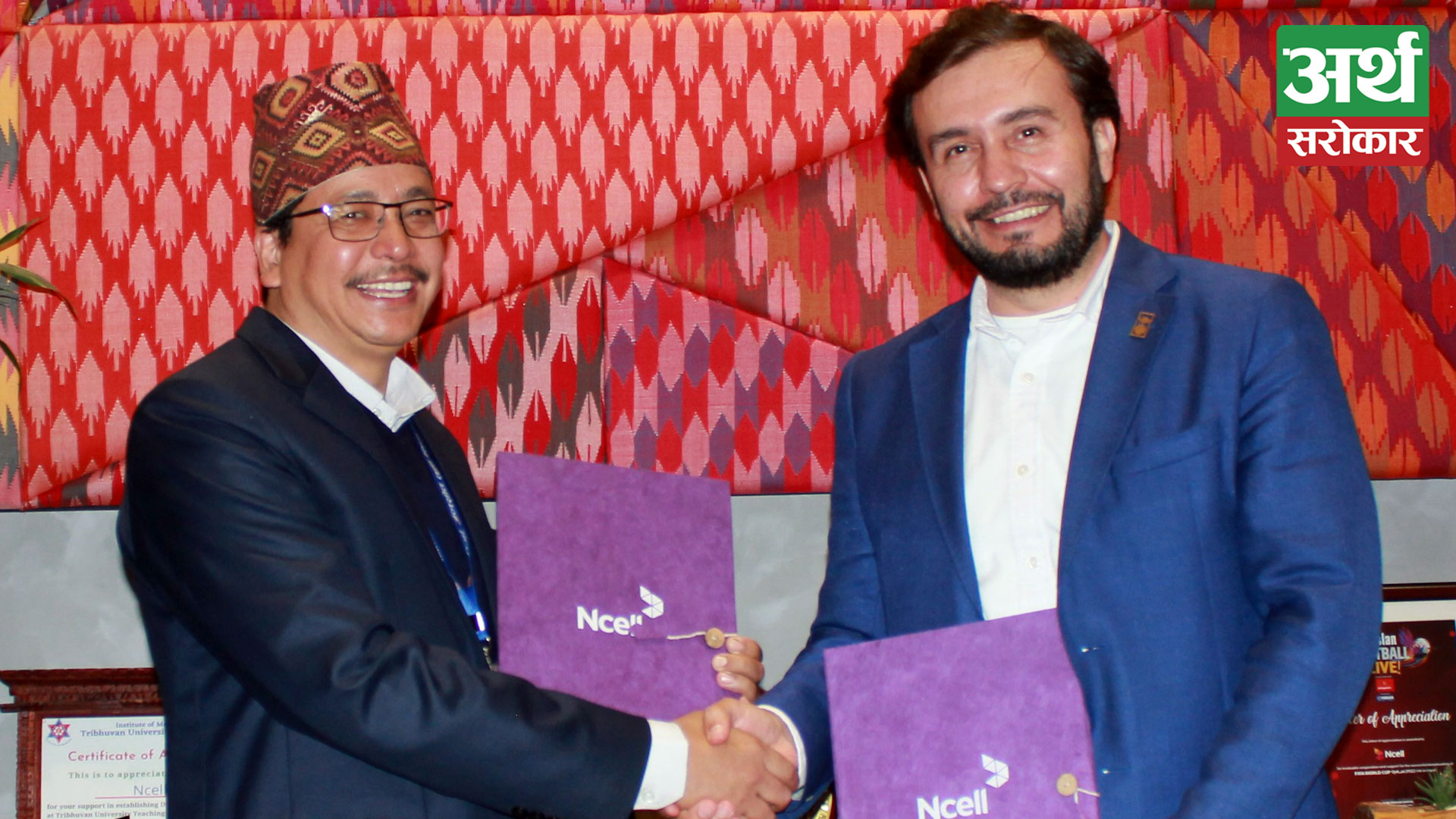KATHMANDU
Ncell, in collaboration with the Department of Hydrology and Meteorology (DHM), has further strengthened communication for the Early Warning System (EWS) by expanding coverage in both hydrological and meteorological disasters. On Wednesday, a Memorandum of Understanding (MoU) was signed to this effect.
Under this extended MoU, Ncell and DHM join hands to work together to disseminate early warning alerts to the public, covering 13 disasters triggered by hydrological and meteorological hazards. This includes the alerts for floods, flash floods, rain, thunderstorms, winds, landslides, avalanches, snowfall, heatwaves, cold weather, forest fires, air pollution, and tornadoes.
Jabbor Kayumov, Chief Executive Officer (CEO) and Managing Director (MD) of Ncell, and Dr. Jagadishwor Karmacharya, Director General of DHM, exchanged the MoU on Wednesday (January 10) amidst a program organized at Ncell’s corporate office, Ncell ICON, located in Lainchaur, Kathmandu.
Sharing his excitement, Dr. Jagadishwor Karmacharya, Director General of DHM, said, “We are extremely thankful to Ncell for pioneering the Flood Early Warning System initiative in Nepal since 2016. Disseminating alerts in the event of an impending disaster has proven to be a lifesaver for survivors. This joint initiative is indeed a great example of grassroots-to-global action of putting the furthest behind first, as envisioned in the recent UN’s ‘Early Warning for All’ initiative. This MoU is yet another milestone with the coverage of 10 additional meteorological hazards. With the support from Ncell and related stakeholders, we have been able to connect with the most vulnerable communities, and thousands of lives have been saved over the years. Despite increasing flood hazards due to climate change in recent years, the mortality rate due to floods has reduced significantly in Nepal since 2018 due to the collective efforts of all stakeholders, and we wholeheartedly appreciate their efforts, including Ncell.”
Jabbor Kayumov, CEO and MD of Ncell, further sharing his commitment to Nepal, said, “We are proud to have this MOU in place with the DHM to further strengthen our early warning system, extending our coverage to 13 hazards. This is a significant milestone in our commitment to enhancing the safety and well-being of the communities and people we serve. Ncell is proud to spearhead and lead the effort since 2016 to ensure that every Nepali is protected by early warning systems. This collaboration between Ncell and DHM is a great example of how public-private partnerships (PPP) can join forces to create a larger positive impact on our society, which underscores our shared commitment to leveraging technology for the greater good in enhancing the well-being of Nepal and Nepali people. As we move forward, we are committed to investing in initiatives that contribute to the well-being of the people of Nepal, as we are here for Nepal and Nepali people.”
Early warning SMS alerts ensure that people get pre-informed about the risk and move to safe locations with their belongings, while organizations involved in disaster response and preparedness get time to act on time. Since 2016, Ncell has been disseminating flood early warning SMS alerts to people living in flood-prone areas, contributing to saving lives and properties from monsoon floods each year. Last year alone, in 2023, the company disseminated over 9 million SMS alerts, pre-informing people of flood-risk areas.
As a responsible corporate citizen, Ncell remains committed to serving people and the community and is also exploring possibilities to implement EWS for other hydrometeorological disasters as well. As DHM installs new telemetry devices and expands hydro-meteorological stations, Ncell will continue to provide similar connectivity support to those stations so that more people can benefit from the EWS initiative.






